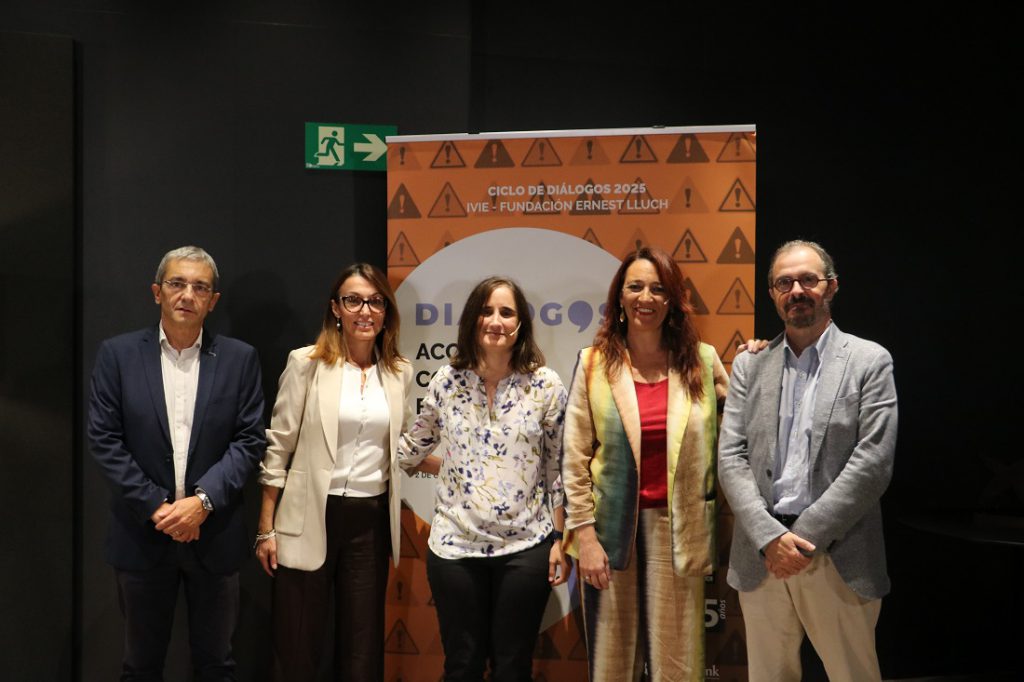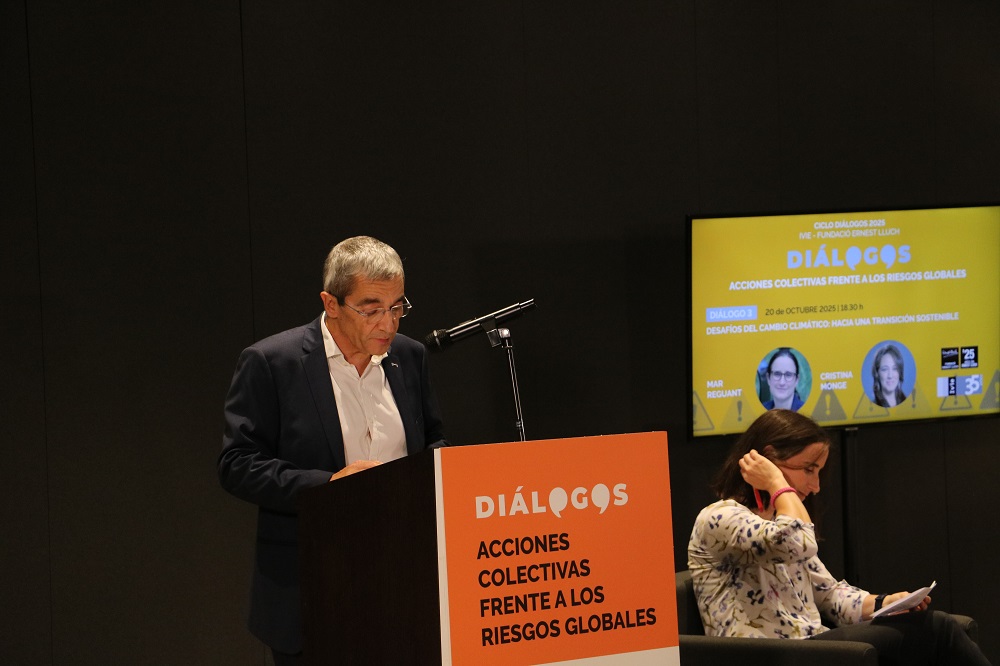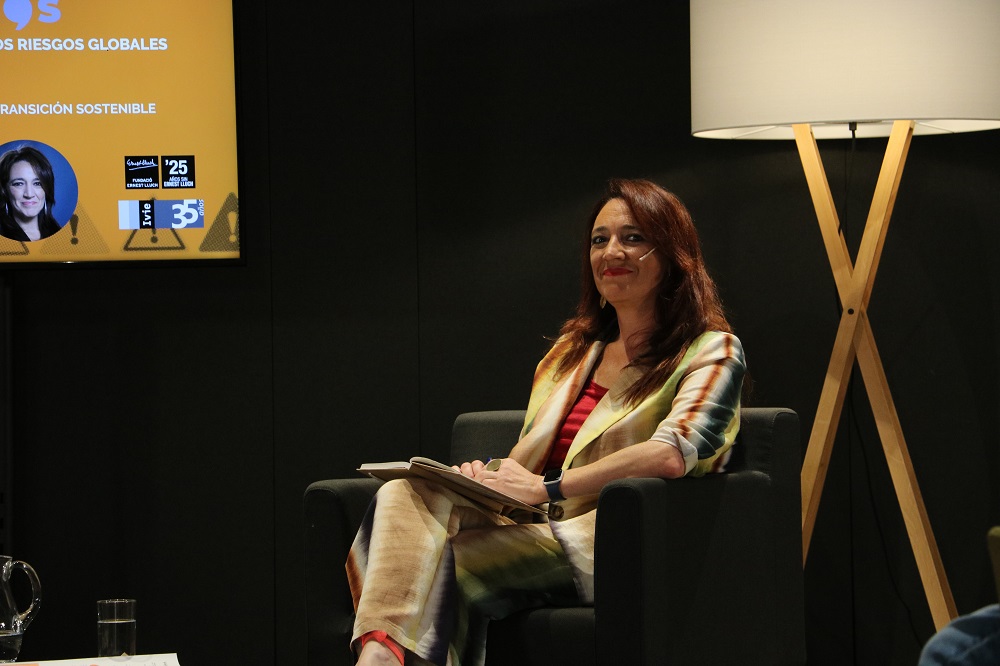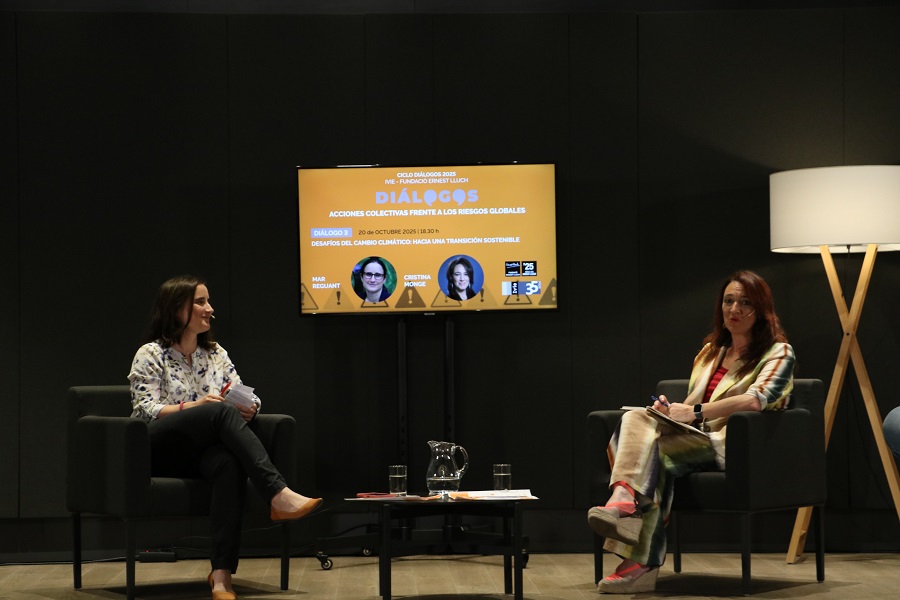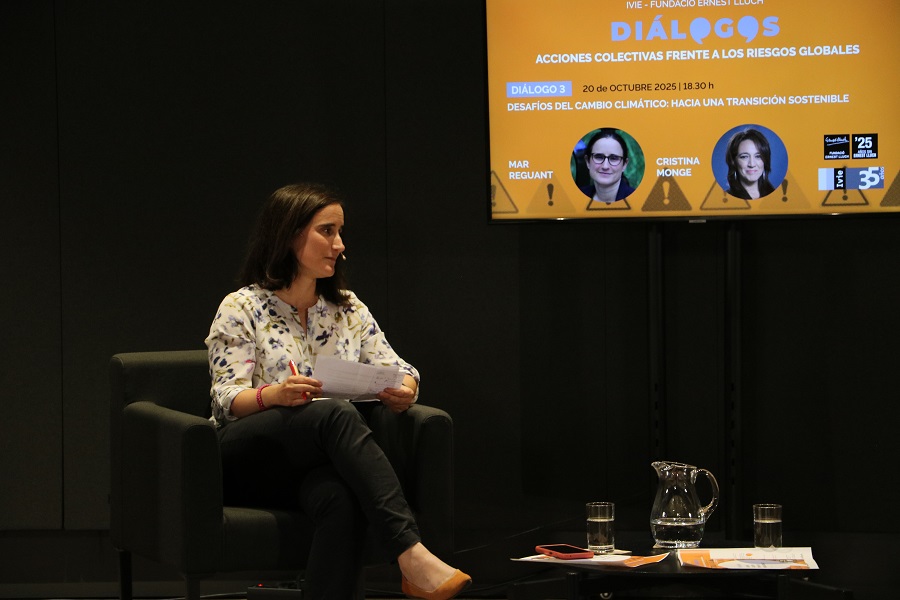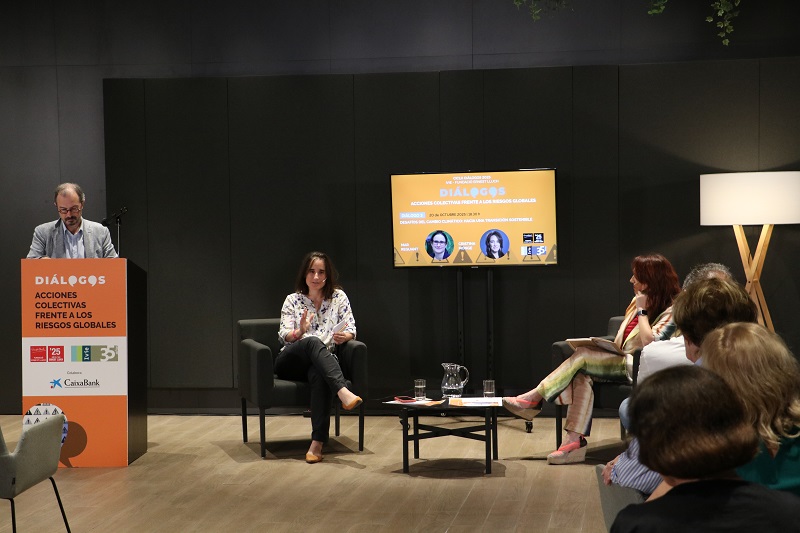Esta web utiliza cookies para que podamos ofrecerte la mejor experiencia de usuario posible. La información de las cookies se almacena en tu navegador y realiza funciones tales como reconocerte cuando vuelves a nuestra web o ayudar a nuestro equipo a comprender qué secciones de la web encuentras más interesantes y útiles.
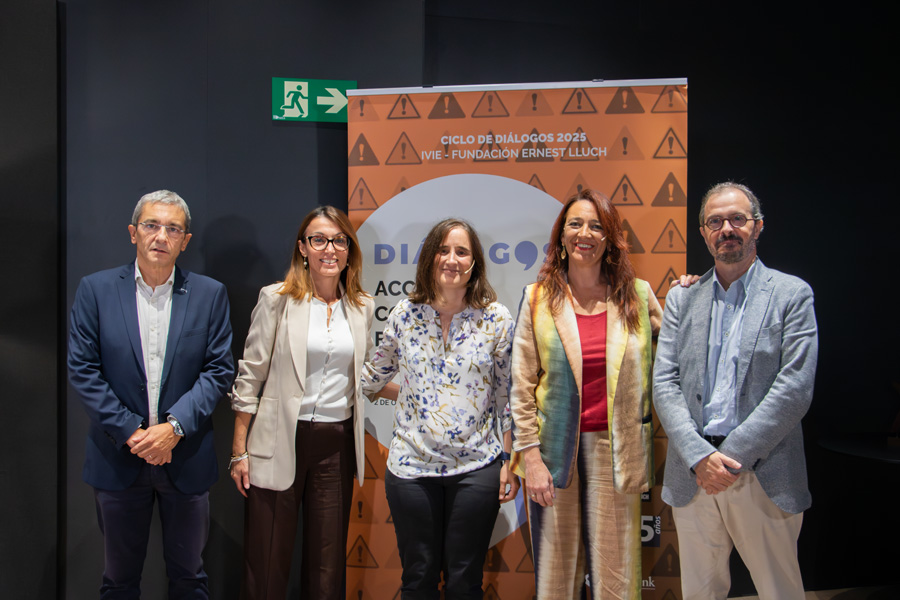
Cristina Monge on Climate Responsibility: Blaming Citizens Was a Mistake
Las dos ponentes del último diálogo del ciclo impulsado por la Fundació Ernest Lluch y el Ivie en Valencia coinciden en que la crisis climática ya no es una amenaza futura, sino una realidad presente que exige una respuesta colectiva
“The climate crisis is the greatest risk we face as humanity, as demonstrated by the tragedy that hit Valencia a year ago.” With this premise, the third session of the dialogue series “Collective Actions for Global Challenges” held in Valencia by the Ernest Lluch Foundation and Ivie, in collaboration with CaixaBank. Mar Reguant, ICREA Researcher at the Institute of Economic Analysis (IAE-CSIC) and Research Professor at the Barcelona School of Economics, and Cristina Monge, President of + Democracia and specialist in governance for ecological transition, agreed that the fight against climate change must be a collective challenge, involving governments, businesses, and individuals.
In their dialogue, titled Desafíos del cambio climático: hacia una transición sostenible (Climate Change Challenges: Towards a Sustainable Transition), both experts emphasized that climate crisis is no longer a potential risk, but a reality that already affects health, economy, and social cohesion because it increases inequalities. At the most recent meeting of the Intergovernmental Panel on Climate Change (IPCC), 141 climate-related risks were identified, grouped into two main areas: health and economy. “Therefore, it affects everything, because those are the two major vectors of life”, said Cristina Monge.
Mar Reguant pointed to rising temperatures, flooding, and wild fires as the most concerning risks, stressing that many of the impacts—especially on biodiversity—are unquantifiable, involving not only economic losses but also human ones. She adds: “There are risks that even insurance companies are unwilling to cover because they have become too certain.”
The speakers also emphasized that the climate crisis is a crisis of social justice, as it increases inequalities. Climate change makes us all poorer, but it affects some more than others—both within the same territory and across countries. In the Valencia storm, for example, material losses hit hardest those living in the most vulnerable housing. Internationally, the least developed countries—those that have contributed least to global warming due to their lack of industrialization—are suffering the most devastating effects.
Both Reguant and Monge agreed that the climate problem is primarily an energy issue. “Greenhouse gas emissions from the burning of fossil fuels (coal, gas, and oil) account for 70% of the problem”, said Reguant, who also expressed optimism about the role and development of renewable energies in Spain. For both speakers, the transition to renewable sources is key to a sustainable future, although they called for greater administrative agility and better planning. “Spain has enormous potential in solar and wind energy. Specifically, solar energy has increased from 8% to 20% of the energy mix in just three years. We don’t need nuclear energy to move towards a cleaner and more resilient model.” On this point, Cristina Monge encouraged a broad debate on nuclear energy in Spain, describing it as an immature technology due to the waste it generates—waste we still don’t know how to manage—and the serious risks it poses with rising temperatures. Both agreed that the closure of nuclear power plants in Spain should proceed according to the current schedule.
In light of growing opposition to renewable energy plants in Spain, Monge added that “the transition must be fair and negotiated with local communities, because time spent on dialogue is time saved later in conflicts.” Both experts agreed that education, communication, and consensus-building are essential to advancing and accelerating the transformation.
Monge insisted that one of the main mistakes in the fight against the climate crisis has been the tendency to blame citizens. “That paralyzes and creates rejection. A country’s energy matrix can only be changed by businesses, politics, and the collective understanding of society. There is personal responsibility, but individual actions alone will not solve the problem. What we as citizens can do is demand that politicians and companies make these changes and vote with green criteria, that is, knowing the environmental policies of each party. Climate change is not an ideological or partisan issue; it is the greatest collective challenge of our time,” she stressed.
In the international context, Reguant insisted on the lack of leadership from the United States on environmental issues. “It has lost all credibility in ecological transition, while China is organizing and planning its future in renewable energies.” As for the European Union, she describes it as a “credible political actor”, whose role should be to advance towards ambitious policies and innovative technological solutions and to include environmental and social justice criteria in trade agreements, in order to encourage other countries to accelerate the sustainable transition.


